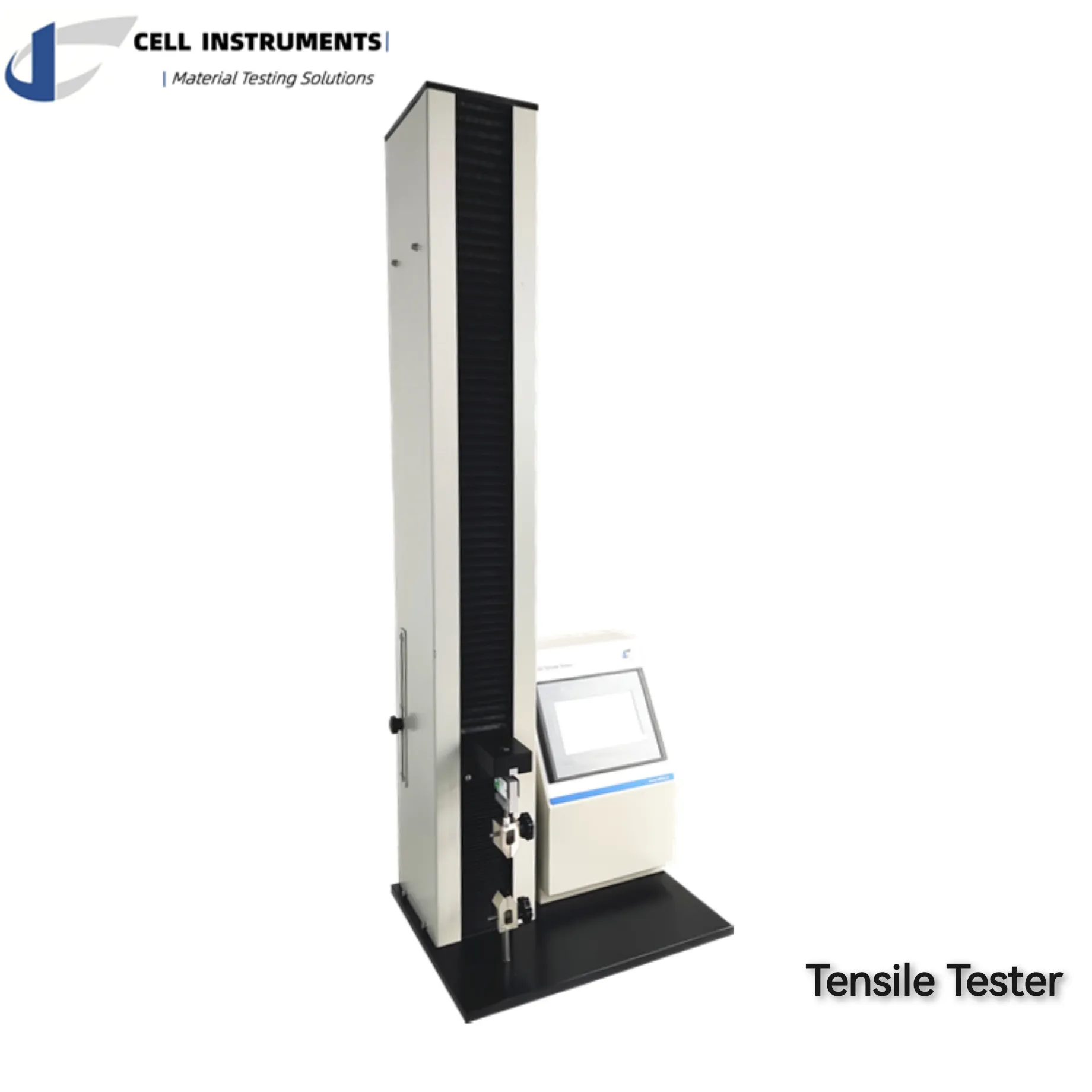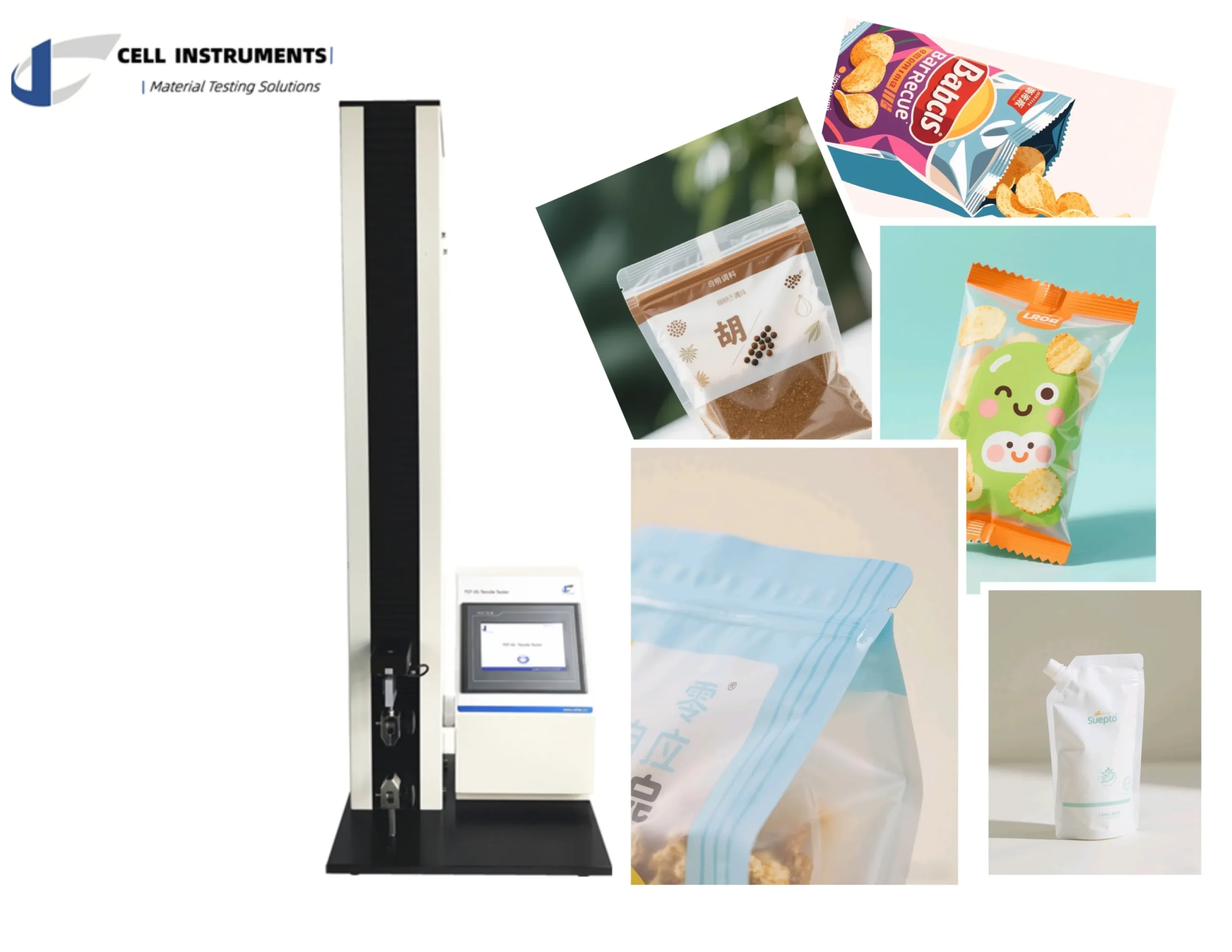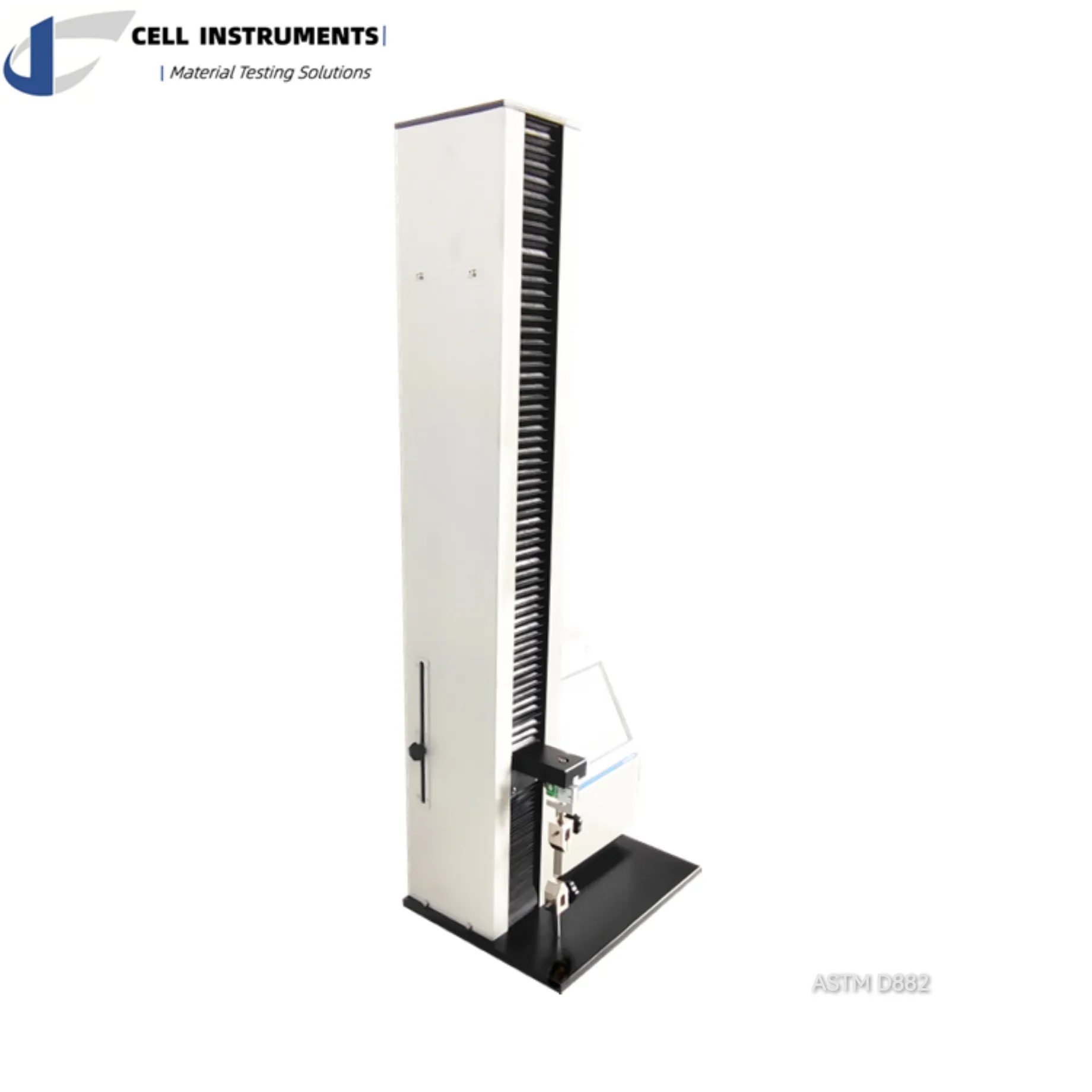Plastic Tensile Strength Test for Films | ASTM D882 & F88
Plastic Tensile Strength Test
About Us
Plastic Tensile Strength Test:
The TST-01 Tensile Tester from Cell Instruments is a high-precision testing system designed for plastic tensile strength tests in flexible packaging materials. It helps quality control professionals and researchers measure tensile strength, elongation, and seal performance, ensuring packaging meets safety, functionality, and regulatory standards.
Flexible films used in packaging—especially polyethylene (PE)—must maintain strength and integrity throughout the product lifecycle. The tensile tester identifies weak points in films and heat seals, helping prevent failures, leaks, and compromised product protection.

Plastic tensile strength test is a fundamental mechanical evaluation
Main Functions and Advantages
01
Multi-function testing:
Multi-function testing: Supports tensile, elongation, break strength, 90°/180° peel, and heat seal strength tests.
02
High accuracy:
±0.5% force accuracy and 0.01 mm displacement resolution.
03
User-friendly interface:
7″ HMI touchscreen with real-time force-extension curve plotting.
04
Multi-fixture compatibility:
Easily switch between tensile and elongation test, seal strength, and puncture resistance.
05
Standard compliance:
Fully supports ASTM D882, ASTM F88 and other global standards.
06
Modular design:
Expandable to COF, penetration, texture analysis, and more.
Discover how a plastic tensile strength test helps evaluate film durability and seal integrity.
Brief Description of the Test Method
Learn about methods, applications, and Cell Instruments' tensile tester.

Brief Description of the Test Method
Test process:
A specimen (usually plastic film or seal) is clamped between a fixed and movable grip. The movable grip applies tension at a constant rate of separation, and the system records force vs. extension until failure occurs.
Test principles:
Measures maximum tensile strength, elongation at break, and modulus of elasticity. For seals, measures maximum seal force, average peel force, and failure mode (adhesive, cohesive, delamination). Tests follow cre-type motion, eliminating slippage and uneven stress distribution.
Key standards:
ASTM D882: Plastic film tensile strength and elongation ASTM F88: Seal strength of flexible barrier materials
Playlist
Related Standards

ASTM D882
Standard test method for tensile properties of thin plastic sheeting

ASTM F88
Seal strength of flexible barrier materials
The TST‑01 Tensile Tester is used across multiple industries
Applicable Fields and Typical Applications
- Flexible packaging: Bags, pouches, laminates, sachets
- Medical packaging: Tyvek, sterile barriers, heat-sealed film
- Pharmaceutical: Blister packs, foil seals
- Food packaging: PE films, vacuum bags, zipper seals
- Plastics & films: LDPE, HDPE, LLDPE, BOPP, PVC
- Quality inspection agencies: Standard testing and product certification
Technical Parameter Table
| Parameter | Specification |
|---|---|
| Test Range | 0–500 N (Options: 50, 100, 200 N) |
| Max Capacity | Up to 1 kN |
| Stroke (without clamp) | 800 mm |
| Speed Range | 1–500 mm/min (adjustable) |
| Displacement Accuracy | ±0.01 mm |
| Force Accuracy | ±0.5% Full Scale |
| Sample Width | Standard 27 mm (customizable) |
| Control Interface | PLC + 7” HMI touchscreen |
| Data Output | Screen, optional microprinter, RS-232 |

Importance of Testing and Company Advantages
01
Importance / Necessity of Testing
Accurate tensile strength measurement is critical to:
Validate film strength during formulation and R&D
Confirm heat seal strength meets packaging specs
Ensure PE tensile strength supports automated filling/sealing
Detect material defects before large-scale production
Maintain compliance with ASTM D882 and ASTM F88 standards
Improve overall product reliability and shelf life

02
Company Advantages
Cell Instruments Co., Ltd. is a professional manufacturer of material testing instruments with industry experience. We specialize in:
Flexible packaging, film, and medical materials testing
Customized equipment and fixtures to meet special testing protocols
Automation solutions for lab and in-line quality control
Global standards compliance (ASTM, ISO, GB, YY, etc.)
After-sales service and technical support from our dedicated engineers

Cell Instruments specializes in tensile testing for plastic packaging materials, offering precision instruments for film, flexible packaging, and seal strength tests.
– About us
Frequently Asked Questions (FAQ)
Q1: What materials can the TST-01 test?
A: PE, PET, BOPP, PVC, laminates, paper, foils, tapes, nonwovens, rubber, and more.
Q2: Can this machine be used for seal testing?
A: Yes, it complies with ASTM F88 for seal strength and supports 90°/180° peel tests.
Q3: What is the required specimen size?
A: Standard specimen width is 15–25 mm; gauge length typically 100–250 mm depending on standard (e.g., ASTM D882).
Q4: Is the machine programmable?
A: Yes, users can set test speed, grip distance, test mode, and output settings via the touchscreen interface.
Q5: How do I calibrate the machine?
A: Calibration is performed per ASTM procedures and with Cell Instruments’ included documentation and service support.


Get in touch
No. 5577 Gongyebei Rd, Licheng, Jinan, 250109, Shandong, P.R.C.
marketing@celtec.cn
+86 185 6001 3985

